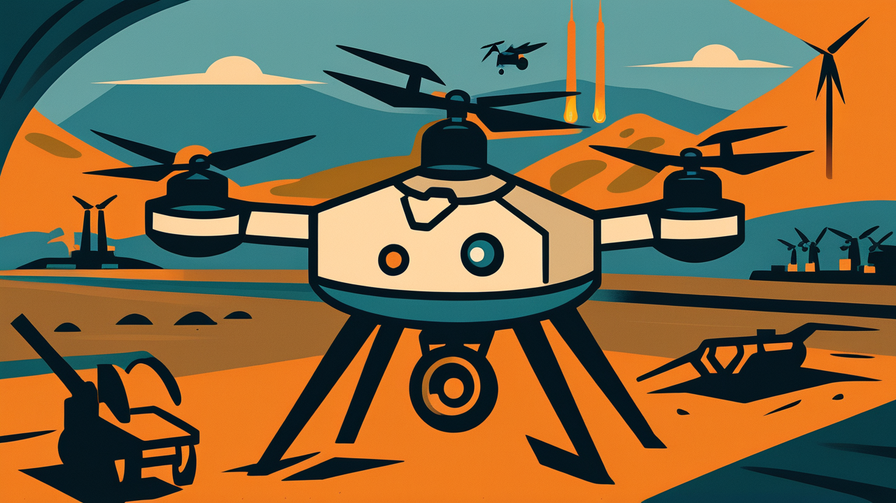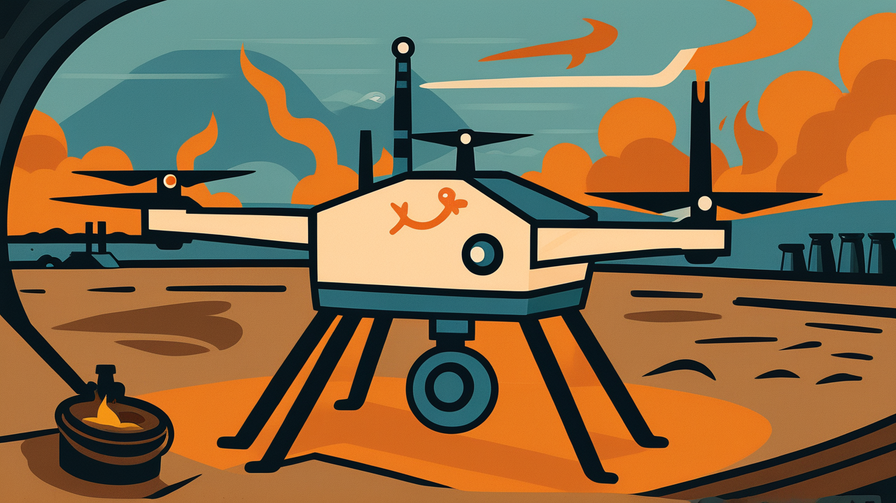[Disclaimer] This article is reconstructed based on information from external sources. Please verify the original source before referring to this content.
News Summary
The following content was published online. A translated summary is presented below. See the source for details.
The United States has strongly condemned a series of drone attacks targeting oil fields in the Iraqi Kurdistan Region that began on July 14, 2025. State Department spokesperson Tammy Bruce warned that these strikes “imperil Iraq’s stability and economic future.” The attacks have hit facilities operated by international companies investing in Iraq’s energy sector. While the statement doesn’t identify who’s behind the attacks, it emphasizes that Iraq’s government has a duty to protect all its territory and citizens. The US reaffirmed its commitment to partners working to build a “stable, federal, and sovereign” Iraq. These strikes come at a sensitive time for Iraq, which relies heavily on oil exports for revenue and is trying to attract foreign investment to rebuild after years of conflict.
Source: U.S. Department of State
Our Commentary
Background and Context

To understand why these attacks matter, we need to know about Kurdistan. The Kurdish people are one of the world’s largest ethnic groups without their own country – about 30 million Kurds live across Turkey, Syria, Iran, and Iraq. The Iraqi Kurdistan Region in northern Iraq is their most autonomous area, with its own government, military (Peshmerga), and flag.
Kurdistan has become an oil powerhouse. The region produces about 450,000 barrels of oil daily and has an estimated 45 billion barrels in reserves – more than Nigeria! This oil wealth has transformed cities like Erbil and Sulaymaniyah into modern commercial hubs with shopping malls, airports, and universities.
But this success creates tensions. The central Iraqi government in Baghdad and the Kurdistan Regional Government (KRG) constantly dispute who controls the oil and its profits. Meanwhile, neighboring countries worry about Kurdish independence movements inspiring their own Kurdish populations.
Expert Analysis
These drone attacks represent a dangerous escalation for several reasons:
1. Economic warfare: Targeting oil infrastructure isn’t just about explosions – it’s about destroying Iraq’s economy. Oil provides 90% of government revenue. Every damaged pipeline or facility means less money for schools, hospitals, and rebuilding.
2. Investment deterrent: International companies were just starting to trust Iraq enough to invest billions. These attacks send a message: “Your investments aren’t safe here.” This could scare away the foreign money Iraq desperately needs.
3. Technology concerns: Drones have democratized warfare. What once required an air force now needs just a few thousand dollars and YouTube tutorials. This makes defending against attacks incredibly difficult.
4. Regional proxy battles: Iraq often becomes a battlefield for other countries’ conflicts. Iran, Turkey, and various militias all have interests in Kurdistan’s oil and politics.
The US statement carefully avoids blaming anyone, but analysts suggest several possible culprits:
– Iranian-backed militias opposing Kurdish autonomy
– ISIS remnants trying to destabilize Iraq
– Turkish forces targeting PKK-linked groups
– Internal Iraqi groups opposing Kurdish oil independence
Additional Data and Fact Reinforcement
Kurdistan’s oil industry facts:
– Production: 450,000 barrels per day
– Reserves: 45 billion barrels estimated
– Revenue: $8 billion annually
– Employment: 100,000+ jobs directly and indirectly
– Foreign investment: $30 billion since 2007
Recent drone warfare trends:
– Drone attacks in Middle East increased 300% since 2020
– Commercial drones modified for military use cost under $5,000
– Defense against drones costs millions per system
– 15+ countries in region now use combat drones
Impact on ordinary people:
– Oil worker salaries support extended families (often 10+ people)
– Oil revenue funds Kurdistan’s relatively good public services
– Attacks create fear, affecting daily life and business
– Environmental damage from burning oil facilities
Related News
Recent regional developments:
– January 2025: Iran launched missiles at alleged Israeli sites in Erbil
– March 2025: Turkey increased operations against PKK in northern Iraq
– May 2025: Baghdad-Erbil oil revenue sharing talks collapsed
– June 2025: US announced troop reductions in Iraq
Global energy implications:
– Oil prices jumped 3% after attack news
– European countries seeking alternatives to Russian energy eye Iraqi oil
– China has major investments in Kurdistan’s energy sector
– Climate activists point to attacks as reason to reduce oil dependence
Summary

The drone attacks on Kurdistan’s oil fields represent more than just regional violence – they’re an assault on Iraq’s future. For a country trying to rebuild after decades of war, oil revenue is the lifeblood that funds everything from teacher salaries to road construction.
Kurdistan’s relative success story in a troubled region makes it a target. While much of Iraq struggled with ISIS and sectarian violence, Kurdistan built universities, attracted investment, and created a functioning economy. These attacks threaten to unravel that progress.
For young Iraqis and Kurds, these strikes hit particularly hard. The oil industry offers some of the few well-paying jobs in a region with high youth unemployment. Every destroyed facility means fewer opportunities for a generation already facing limited options.
The international dimension can’t be ignored. As the world pivots from Russian energy, Iraq’s oil becomes more strategically important. But investors need stability, and drone attacks are the opposite of stability. If attacks continue, companies might abandon Iraq for safer markets, devastating the economy.
The US condemnation signals continued American interest in Iraq’s stability, but words alone won’t stop drones. Iraq needs better air defenses, political solutions to Kurdish autonomy questions, and regional cooperation to prevent proxy conflicts. Without these, the drone attacks might be just the beginning of renewed chaos.
Public Reaction
Kurdish social media shows anger and fear. Many post defiant messages about Kurdish resilience, while others worry about job losses. Baghdad residents express mixed feelings – some sympathize with Kurdistan, others resent its separate oil deals. International oil workers debate whether danger pay is worth the risk.
Frequently Asked Questions
Q: Why is Kurdistan’s oil controversial?
A: Iraq’s constitution is unclear about who controls oil – the central government or regions. Kurdistan makes independent oil deals, which Baghdad says is illegal. This dispute has lasted since 2003.
Q: Are these attacks connected to ISIS?
A: Unknown, but unlikely. ISIS typically claims attacks for propaganda. These strikes seem more sophisticated than ISIS’s current capabilities, suggesting state or militia involvement.
Q: How do drone attacks affect oil production?
A: Even minor damage can shut facilities for weeks. Companies must assess damage, import repair equipment, and ensure safety. Fear also makes workers reluctant to return.
Q: Will this affect gas prices globally?
A: Probably not significantly. Kurdistan produces less than 1% of global oil. However, if attacks spread or escalate, markets might panic, raising prices everywhere.


